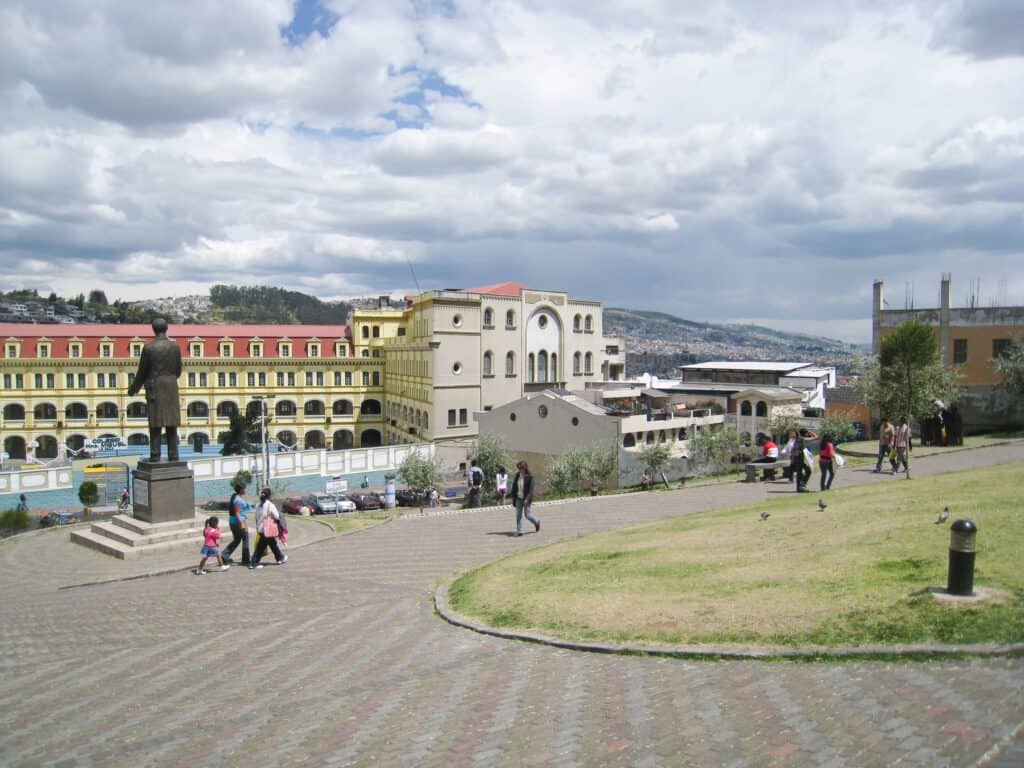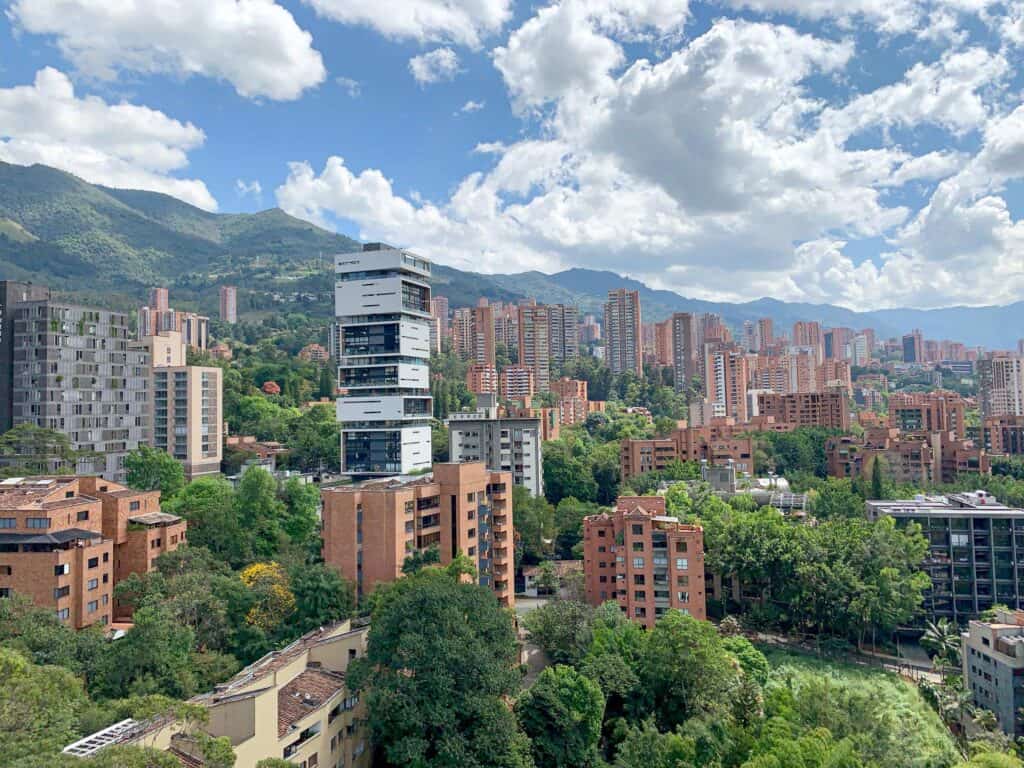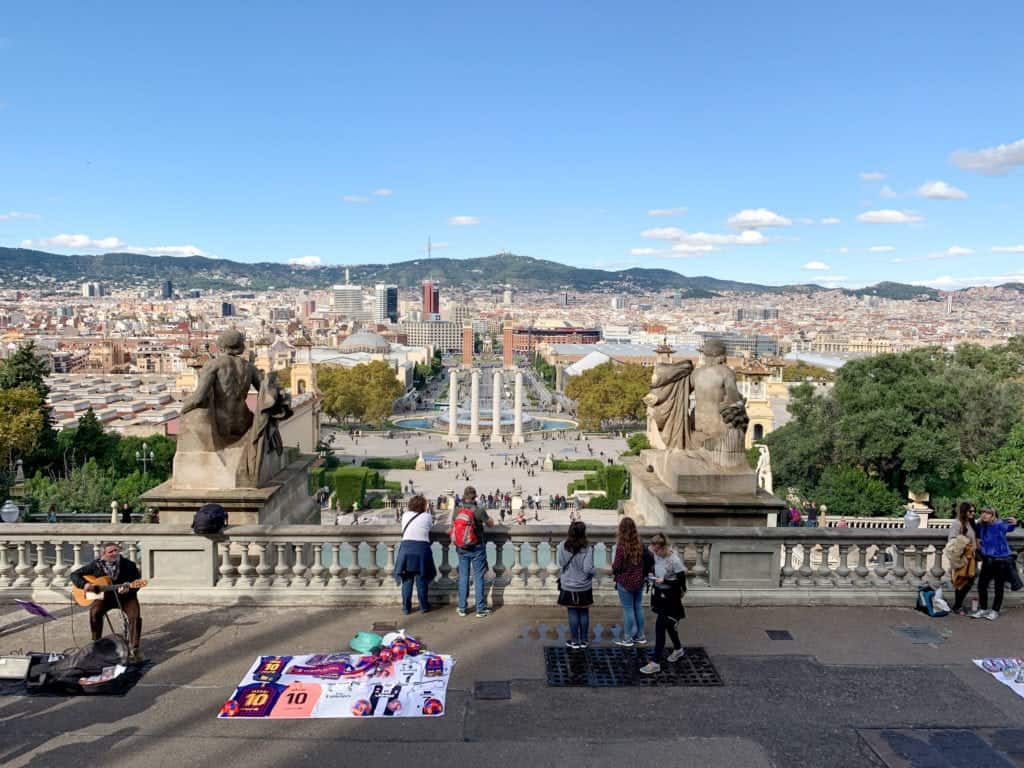
A while back, I visited Quito, Ecuador, and was surprised with how many stories were passed around about petty theft in the city.
It seemed to be so commonplace, and it was concerning.
The topic of theft was the main thing I discussed with people who had been there. Furthermore, several people I knew were actually robbed in Quito.
I am happy to report that I traveled throughout Ecuador without being robbed, but I think it was largely due to the precautions I took.
I try to be aware of potential petty theft and take steps to minimize the chances of it affecting me.
So without further ado, here is how you plan for it (and plan to avoid it).
1. Minimize the Stuff That Can Be Stolen
The first way to handle potential petty theft is simple: try not to have everything on you at any one time.
Although this is impossible while you're in transit from one place to another, it is a smart thing to do once you get to your hostel.
Once you get to your lodging, take some time to secure certain things that you won't take out with you during the day.
This can include your passport (carry a copy), ATM cards (take cash), your laptop, and extra phones. Lock them up somewhere, like in this travel safe.
There's no reason to carry around your full wallet, passport, and phone everywhere you go.
You can thin out your wallet considerably by taking enough cash for the day and leave everything else locked up at the hostel.
Think about it– if you are only carrying $75 in cash during the day and no ATM card, then the maximum anyone could rob you of would be the $75.
It would sting, but wouldn't be too great of a loss.
Also, consider where you might be going– do you really need to take your expensive camera?
Unless you are specifically going to do a photoshoot, taking your $2,000 DSLR camera might be unnecessary.
You can snap pics on your phone if you need to.
Speaking of phones, consider offloading the data of your phone (or using a cheaper one) when you go out in a place where petty theft might occur.
Make sure your private information like passwords, private photos, and personal data are not easily accessible on your phone.
That way, if someone does steal your phone, you've minimized the damage that can occur.
A simple way to do this would be to have a second phone — one that has a good camera, but which doesn't carry a lot of apps or personal data.
Perhaps it could include a translator app, Google Maps, and a list of things you want to see and do, but not much else.
Again, in the event you are robbed, you wouldn't be losing as much as you could, and you wouldn't have to worry about getting your identity stolen on top of it.
See also: How to Choose the Best Travel Camera

2. Have Backups and Backup Plans for Your Most Valuable Stuff
If you plan to use only one phone on your trip, it's a good idea to backup your phone before going out.
In the event that someone swipes your phone, you don't want to lose all the data and pictures, plus all your communications with friends and family, apps, notes, etc.
In short, don't make yourself vulnerable by having all your data and photos in only one place.
So, there's no reason not to make backups. I use an external hard drive like this one.
It has a couple of terabytes of space, so I know I can store practically anything on it.
I'd consider it a must-have for anyone traveling to areas of the world where petty theft is common.
In addition to backing up your phone, make sure you back up important documents such as your passport.
I'd make at least five color copies of your passport and store them in various places so that you always have a copy handy.
Also, you could make a digital copy of your passport and keep it on your computer.
Other things to have digital copies of including your ATM cards, credit cards, and any other personal identification you have.
Snap photos of your luggage, computer, and other valuables so that you can easily show the authorities (and your insurance company) what was lost.
The easiest thing to do is to store them in your email (send them to yourself) or in the cloud (using a secure site like Dropbox).
For password protection, password managers have gained significant popularity recently. Some of them offer a free version of their services as well, as is the case with NordPass.
Again, the reason why you need these backups is to minimize the effect of any potential petty theft.
In the worst-case scenario, you'll be ok. Also, your mind will be relieved that you've backed up everything.
You could also consider getting travel insurance, which could replace the cost of your phone and other valuables if they are stolen.
I'd recommend this for anyone carrying expensive cameras, laptops, or other electronic equipment around with them.
See also: The Best Travel Insurance for Backpackers

3. Minimize the Chances of Anyone Robbing You
Assuming you've taken the precautions thus far, you have minimized the effect that any incident of petty theft could have on you.
So you can relax. But not completely.
There still remains a piece of rather obvious advice (but one that people can forget during an exciting trip abroad): do simple things to avoid being robbed in the first place.
That means above all that you should avoid specific places– like the more dangerous parts of town, dimly-lit streets at night, and desolate city parks.
If you have to walk through these places, try to do so in a group, preferably six or more. Thieves often work in small groups of two to three people. A larger group is likely to deter them.
If you find yourself walking alone, try to walk at a brisk pace and keep an eye on your surroundings.
Try to know exactly where you are going, especially at night.
While some people enjoy getting lost in a city, I have heard many stories of this type of wandering ending with a crime being committed.
Another way to minimize the chances of anyone robbing you is to avoid appearing like you have a lot of money.
This means that it's probably not a good idea to be walking around town in a $200 shirt, a sparkling watch, and Gucci loafers.
(Believe me, some will dress like this on a night out!)
If you dress in this manner, you are attracting the wrong kind of attention. Especially in a place like Latin America, you can bet that the wrong types of characters will notice any bling-bling you wear.
Finally, get into the habit of checking your phone only in certain places– like inside a coffee shop or a mall, for example.
If you are constantly checking your phone out in the street, you are running the risk that a bad actor will see it and try to take advantage of you.
Phones are the most common item stolen these days.
They carry a lot of value and can be grabbed out of thin air by a passing cyclist, who escapes at high speed within seconds.
They can be swiped by someone at a restaurant who sees your phone sitting out on the table.
They can easily be taken out of the back pocket of your jeans (always put the phone in the front pocket!).
You minimize your chances of having your phone stolen by keeping it inconspicuous.
Again, we're not saying you'll never get robbed, as that is impossible to predict.
We're talking about minimizing your exposure to petty theft, which is an unfortunate reality in many parts of the world.
See also: Pick-Pocket Proof Pants by Clothing Arts
Conclusion
If you have done the steps I've outlined above, you've taken all the appropriate precautions, short of staying locked in your apartment.
While it is very unpleasant– even traumatic– being the victim of petty theft, you can minimize the chances that the effect on you will be too severe.
Unfortunately, petty theft is a reality in many of the coolest countries in the world.
Recognizing the potential for theft and taking steps to protect yourself is part of being a courageous traveler.
____
Photo Credit: All photos by Dave Lee
Matt has been traveling the world for over 7 years, primarily in South America, but likes to keep a low profile. He likes to encourage others to go abroad, to learn to dance, and to drink capirinhas.
Planning a trip? Go Backpacking recommends:
- G Adventures for small group tours.
- Hostelworld for booking hostels.
